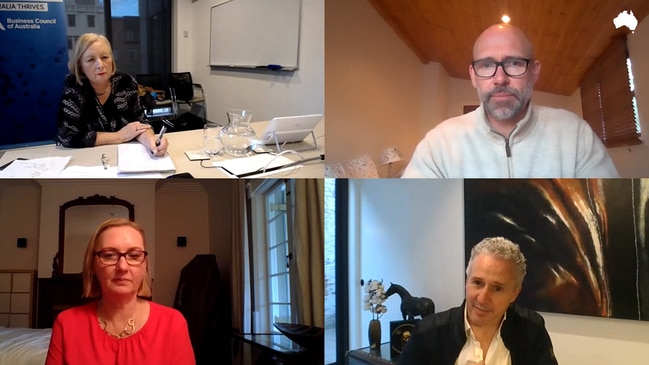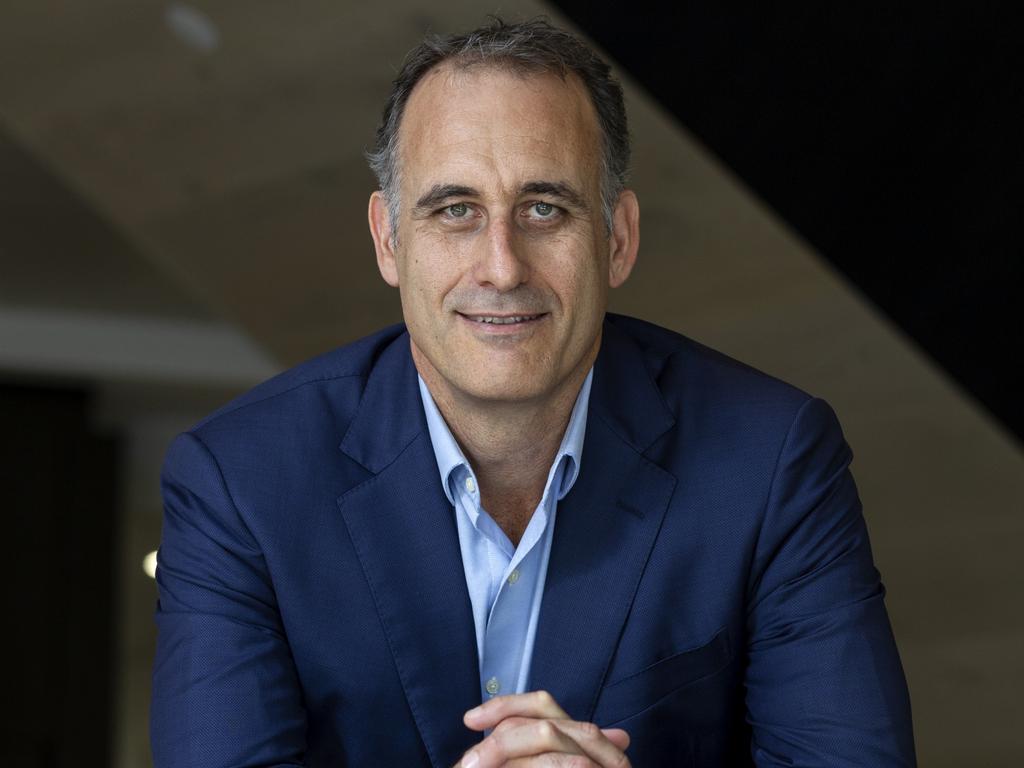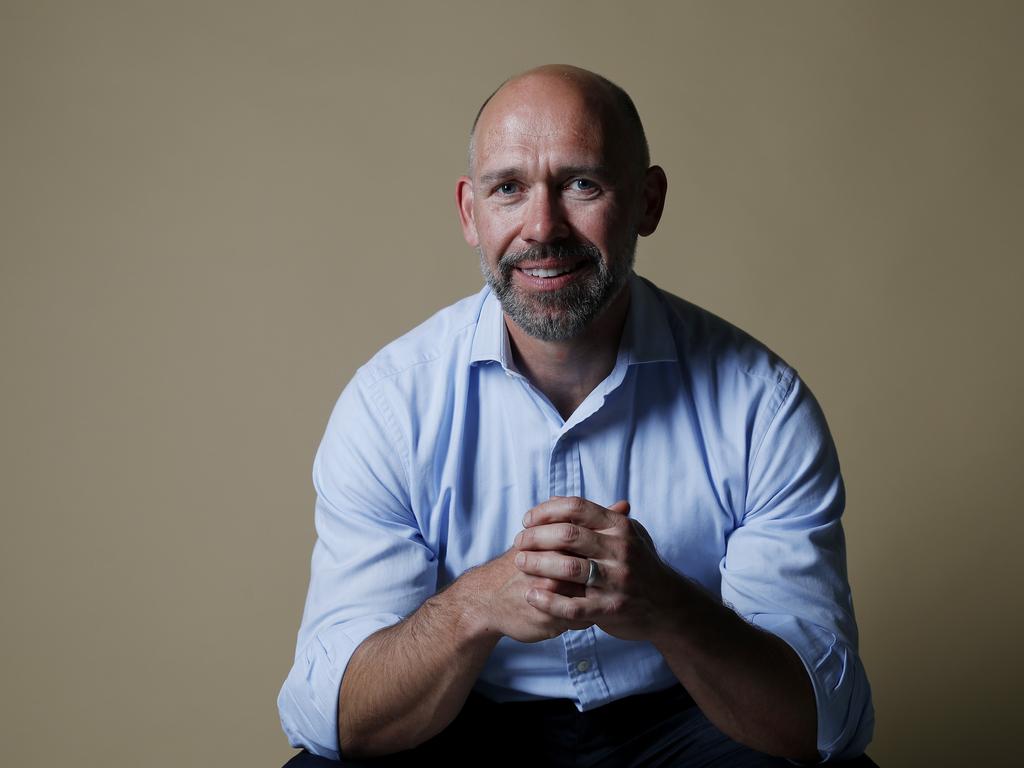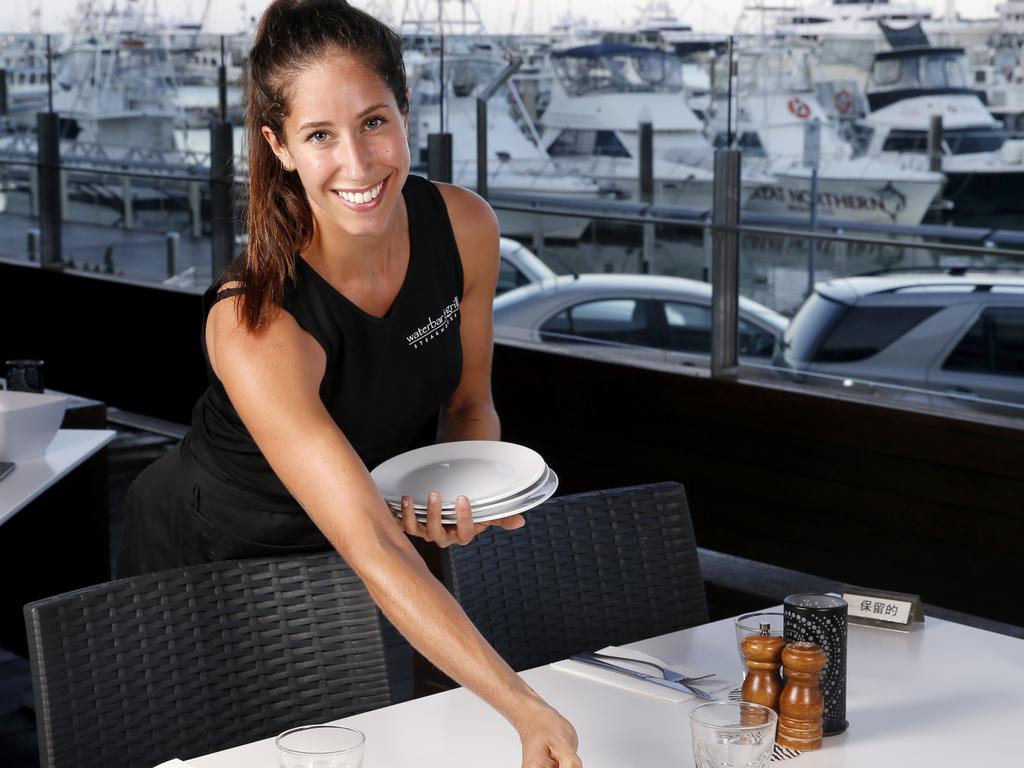Leaders warn on lockdowns’ threat to recovery
Business leaders have urged governments to localise any future COVID-19 lockdowns to limit damage to the economy.

Business leaders have urged governments to localise any future COVID-19 lockdowns to limit damage to the economy and hold down the potential unemployment rate as the nation braces for the full impact of the Victorian shutdown.
“Widespread, significant lockdowns really hurt the economy,” Wesfarmers chief executive Rob Scott told a round table of Business Council leaders organised in conjunction with The Australian this week.
The business leaders, who head up some of the 14 specialist committees set by the Business Council to deal with the pandemic, warned governments to be as targeted as possible in any future shutdowns.
“Lockdowns have an enormous negative effect on confidence,” said Mr Scott, whose company owns Bunnings, Officeworks, Target, Kmart, Catch.com.au and Geeks2U.
“Every week there is a significant lockdown, there’ll be businesses that simply don’t recover.
“We need to be doing everything we can to become a lot more sophisticated in our localised containment because we do need to learn to live with this going forward at least into the foreseeable future.
“The more we can have effective localised responses, then it will build confidence in consumers and in businesses.”
Mr Scott said there had been a downturn in consumer spending recently in the hotspot areas of Victoria.
“Coming into the recent outbreak in Victoria, we were seeing a fairly widespread recovery,” he said. “Across every state we were seeing consumer spending improve and we were also seeing an improvement in business spend, which was encouraging.
“But with the resurgence of cases in Victoria, we’ve seen Victorian consumer spending decrease, and decrease significantly in the hotspot areas at both a retail and a business level. It’s very concerning.”
Less spending
He said there were estimates that the latest shutdown in Victoria was costing the economy about $1bn a week. “That means less spending at a household level, less spending by businesses, less wages paid to people, less hours worked,” he said.
Coca-Cola Amatil chief executive Alison Watkins said governments should try to avoid state-based lockdowns if possible.
“The tighter you can isolate an outbreak and limit the need for broader, more heavy-handed lockdowns, the better,” Ms Watkins said.
“We should try to have very tightly targeted lockdowns that are not about state boundaries.”
She said targeted lockdowns would also help in the longer run for Australia to be able to open up for international travel.
“If we want to open up our international travel possibilities to New Zealand and Fiji and so forth, (state-based lockdowns) really get in the way,” she said.
But she said the outbreak of COVID-19 in Victoria was also a reminder that there would be sectors that needed extra support.
“What we’re experiencing in Victoria gives us a glimpse of potentially the scenarios that we need to continue to be able to support,” she said.
“Where we do have these localised outbreaks and a need to lock down hopefully in highly targeted ways, we do need to have the capacity for support,” Ms Watkins added. “Clearly there are going to be some sectors which are going to be disadvantaged for quite some time.”
Business Council president Tim Reed, the former CEO of accounting software company MYOB, said the nation was at a critical point with the outbreak of COVID-19 in Victoria where it needed to come together and adopt a “Team Australia” approach to tackling the problems.
“This is a real moment in time,” Mr Reed said.
“In the next couple of weeks we’ll really see how we can collectively respond as a Team Australia to make sure we don’t allow outbreaks to bring a complete stop to the economy.”
He said it was important that there continued to be high levels of co-operation between the federal and state governments and business in tackling the crisis.
“It would be great to see continued high levels of collaboration between state and federal governments, between business and government and business and the community,” he said.
Few apartment approvals
Mirvac chief executive Susan Lloyd-Hurwitz warned that a lack of confidence in the Victorian market would affect the housing and construction industry.
“We are clearly seeing a decrease in approvals and commencements,” Ms Lloyd-Hurwitz said.
“There are very few apartment approvals being sought. That must be directly related to confidence.”
But she said there was a different mood in Sydney, where Mirvac was getting ready to launch the next two stages of its Green Square redevelopment in South Sydney. “We have absolute confidence to be able to take that product to market,” she said.
Ms Lloyd-Hurwitz said business and consumers around Australia were becoming more effective in handling lockdowns.
“The last time we dealt with lockdown, we were also dealing with mass uncertainty, safety issues, pivoting to working remotely,” she said.
“People were suddenly learning how to home school. We were negotiating as an industry a code of conduct on how we were going to deal as a bare minimum with customers.
“This time around, all those things are already in place.”
Try to carry on
She said “everyone was in shock” during the first shutdown in response to the COVID-19 crisis earlier this year. With the second shutdown in Victoria, she said, Mirvac staff initially “just felt sad and flat for a day”, but then got back to work. “You’ve got to pick up and keep going and serve customers in the way we have all learned to do over the first 16 weeks of this journey,” she said.
“You just carry on the best you can.”
Telstra chief executive Andrew Penn said the COVID-19 crisis was an opportunity for business to rebuild some of the trust with the public that had been lost in the wake of the royal commission into misconduct in the financial services industry.
“This is a big opportunity for business, particularly big business, to redefine its relationship and rebuild trust with the community,” Mr Penn said.
“At the end of 2019, after the banking royal commission, the level of trust from the community towards big business had probably never been lower.
“There’s a great opportunity now to use this to make significant steps towards things like climate, inclusion, the responsible business and the level of trust between big business and the community.
“I can’t predict where this COVID thing is going to end up, but there’s an opportunity for business to play an important role, as it should, in our recovery.”








To join the conversation, please log in. Don't have an account? Register
Join the conversation, you are commenting as Logout